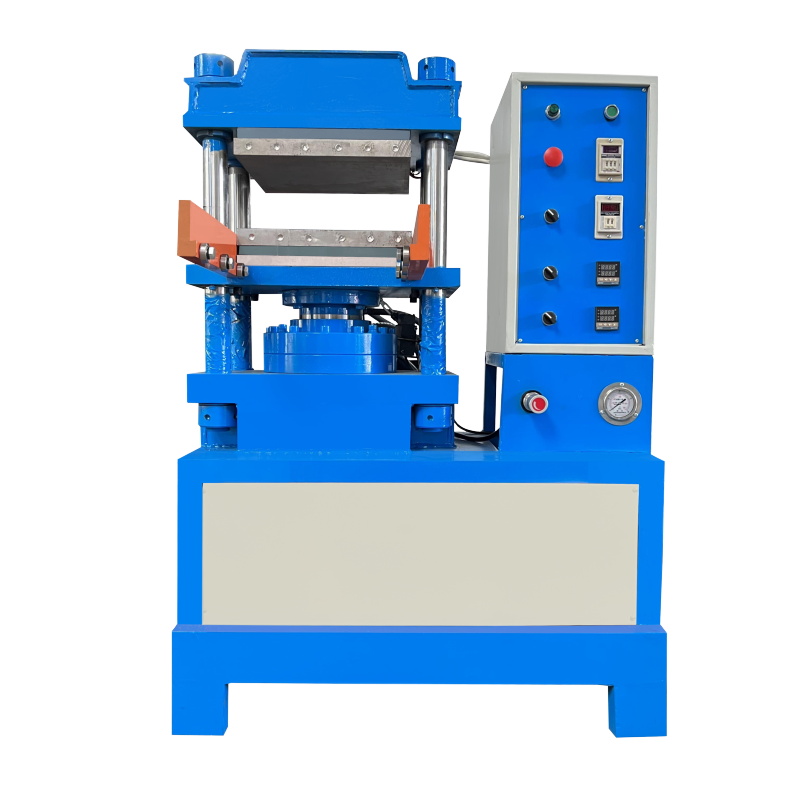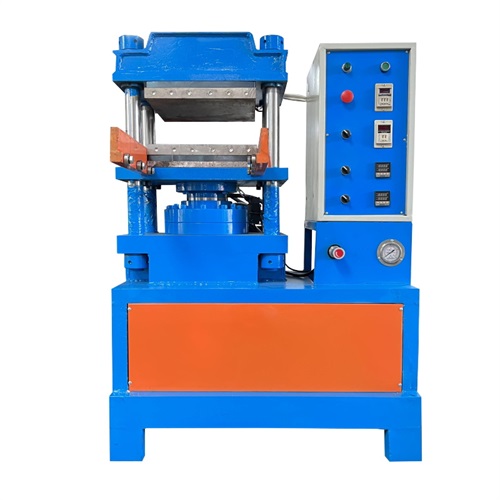
Principle of Rubber Vulcanization Machine
A rubber vulcanization machine, also known as a Vulcanizer, is a piece of industrial equipment used in the rubber manufacturing process to enhance the properties of raw rubber by undergoing vulcanization. Vulcanization is a chemical process that involves adding sulfur or other curatives to rubber and then subjecting it to heat and pressure. This process cross-links the polymer chains within the rubber, resulting in improved elasticity, strength, durability, and resistance to heat and chemicals. The principle of a Vulcanizing Machine revolves around the process of vulcanization, which is a chemical reaction that enhances the properties of raw rubber by cross-linking its polymer chains using heat and pressure. The vulcanizing machine provides the controlled environment required for this process to take place effectively. The key principle underlying the vulcanization machine's operation is the controlled combination of heat and pressure to facilitate the chemical reactions necessary for cross-linking within the rubber material.
Model | YX-DJ50T |
Hot plate specification | 350*350mm |
Hot plate spacing | 150mm |
Cylinder diameter | cp150mm |
Machine structure | Four column/single head/double head model |
System pressure | 18MPa |
Heating system | Imported electric heating tube |
Power supply specification | 380V/50HZ |

Essential details | |||
Place of Origin | China | Applicable Industries | Hotels, Machinery Repair Shops, Home Use |
Type | Vulcanizer | Showroom Location | None |
Condition | New | Model | YX-DJ50T |
Video outgoing-inspection | Provided | Hot plate specification | 350*350mm |
Machinery Test Report | Provided | Hot plate spacing | 150mm |
Warranty of core components | 1 Year | Cylinder diameter | cp150mm |
Core Components | PLC | Motor power | 3.75KW |
Voltage | 300V/50HZ | Temperature range | Normal temperature -350°C |
Dimension(L*W*H) | 1.0*1.3*1.5(m) | Working level | Upper and lower layer |
Warranty | 1 Year | Machine structure | Four column/single head/double head model |
Key Selling Points | Automatic | System pressure | 18MPa |
Power (kW) | 3.75 kW | Reducer casing | Power supply specification |
Rubber vulcanizing press and Rubber Molding Equipment
Rubber vulcanizing press and rubber molding equipment are both integral components of the rubber manufacturing process, but they serve different purposes. A rubber vulcanizing press, is used to enhance the properties of raw rubber by subjecting it to the vulcanization process. This process involves the addition of sulfur or other curatives to the rubber and then applying heat and pressure to cross-link the polymer chains within the rubber. This cross-linking results in improved strength, elasticity, heat resistance, and other desirable properties in the rubber. Rubber molding equipment refers to machinery used to shape raw rubber material into specific forms or products. The molding process involves placing the rubber material in a mold or die cavity and then applying pressure and heat to shape the material according to the mold's design.
Vulcanization machines typically consist of a heating system, pressure system, control system, and vulcanization chamber. The heating system provides the required temperature, the pressure system controls pressure during vulcanization, the control system monitors and adjusts vulcanization parameters, and the vulcanization chamber is where the vulcanization reaction occurs.
Rubber vulcanizers can be divided into batch vulcanizers and continuous vulcanizers according to their uses and process requirements. Batch vulcanizers are suitable for small batch production, while continuous vulcanizers are suitable for large-scale production.
Vulcanization time depends on rubber type, thickness and desired properties. Typically, the vulcanization process lasts from a few minutes to a few hours.
The temperature range of the vulcanizer is usually between 150 and 200 degrees Celsius, depending on the type of rubber and vulcanization formula.
The optimal pressure for the vulcanizer depends on the type of rubber and the desired product specifications. Typically, vulcanizers have adjustable pressure systems that can be adjusted as needed.
Maintenance of the vulcanizer includes regular cleaning, lubrication and inspection of key components. Maintenance measures also include regular replacement of worn parts to ensure the stability and safety of the vulcanizing machine.
The energy consumption of a vulcanizing press depends on its size, heating method and working efficiency. Modern vulcanizing presses are typically designed to be energy-efficient equipment, using advanced heating and control technology to reduce energy consumption.
Yes, vulcanizers must comply with local and international environmental standards. Manufacturers often need to ensure that their products comply with relevant regulations to protect the environment and worker health.
Curing presses are typically equipped with safety switches, temperature and pressure monitoring systems, and emergency stop buttons. In addition, operators need to be trained and follow safe operating procedures to ensure the vulcanization process is carried out safely.
Vulcanizers are widely used in rubber product manufacturing, including tire manufacturing, rubber seals, rubber tubes, etc. It is also used in the production of industrial and household products such as rubber flooring and rubber mats.
Future development trends of vulcanizers include higher automation, more energy-saving designs, more environmentally friendly processes, and more intelligent control systems. With the advancement of science and technology, vulcanizing machines will become more intelligent and efficient.